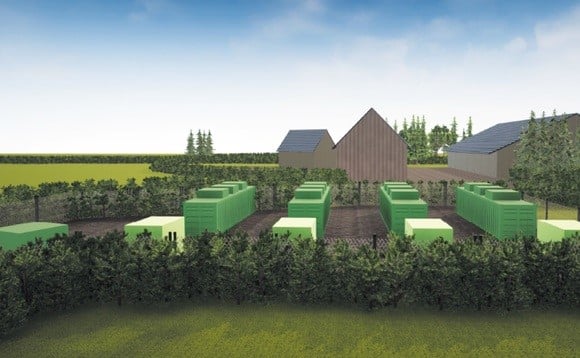
Developer Intelligent Land Investments (ILI) Group has secured Section 36 planning consent for a 100MW/350MWh 3.5-hour duration battery energy storage system (BESS) in Scotland.
The Learielaw BESS project will be located near the town of Broxburn, West Lothian, which is well known for its history as a centre of the oil shale industry, thanks to the investor and industrialist James Young.
This marks the first of ILI Group’s projects to receive planning consent in 2025. At the end of 2024, the organisation announced a flurry of successful planning approvals, most notably for its 100MW Flemyland and 200MW Whitehill BESS sites in Scotland.
Mark Wilson, CEO of ILI Group, said the project will be another strong addition to its BESS pipeline.
“As the grid evolves to handle more renewable energy generation, projects like Learielaw will be vital in providing the flexibility and reliability the system needs. This is a key step in our mission to make Scotland a leader in clean, secure energy,” Wilson added.
ILI Group, based in Hamilton, Lanarkshire, currently has a 4.7GW development portfolio, which includes 2.5GW of pumped hydro energy storage (PHES) projects and 2.2GW of utility-scale BESS projects.
One of these PHES sites is the 1.5GW/45GWh Balliemeanoch development. In July 2024, ILI Group submitted its Section 36 planning application to the Scottish government.
The Learielaw BESS has a grid connection date of 2028, with ILI Group stating that this will make it well-positioned to support Scotland’s energy transition by adding firming capabilities to the uptake of variable renewable energy generation.
Scotland is a strong area for BESS development due to its high levels of wind generation. However, because of an inadequate transmission network, this energy cannot be exported to England.
A way to mitigate this is to provide large-scale BESS, which stores excess electricity generated by wind power plants and discharges it when needed.

